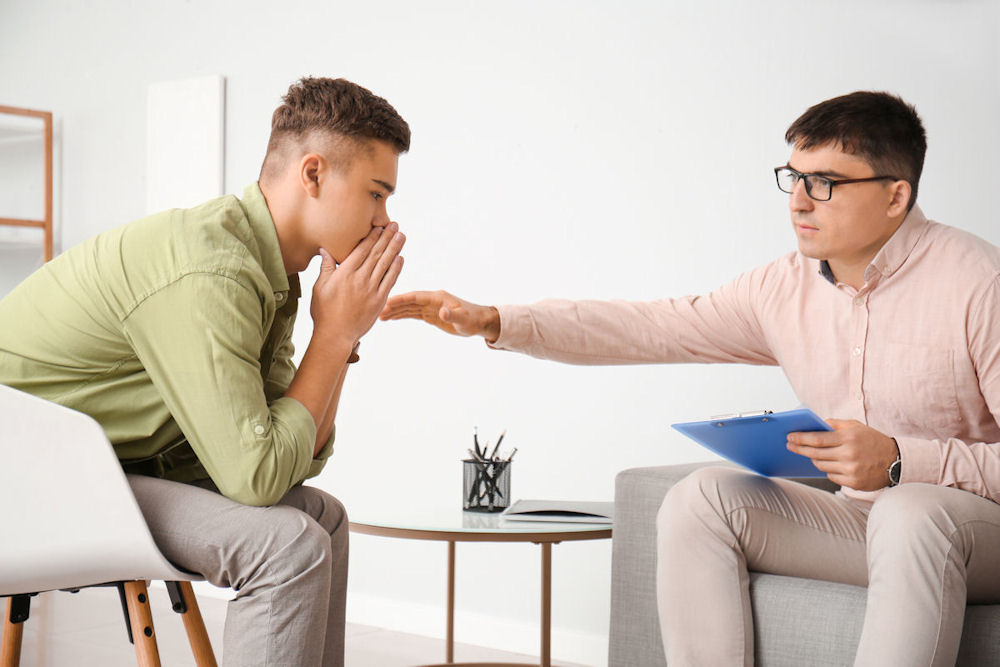
Unlike outpatient programs where patients return home after their sessions, inpatient treatment centers provide a safe and supportive setting away from everyday triggers and stressors. These centers focus on creating a stable environment where teens can concentrate solely on their mental health recovery journey.
Components of Residential Treatment
Inpatient treatment for teens includes core components that encompass a variety of therapeutic approaches and supportive measures aimed at fostering long-term mental wellness. Key elements typically include:
Individual therapy involves one-on-one sessions with a licensed therapist or counselor, where adolescents can explore their thoughts and feelings, develop coping strategies, and work through personal challenges. This personalized approach ensures that each teen receives tailored support for their specific needs.
Group therapy provides a space for young boys to connect with peers facing similar challenges. Through facilitated discussions and activities, they can share experiences, build relationships, and learn from one another, fostering a sense of community and support.
Medication management is overseen by psychiatrists or medical professionals who evaluate and prescribe necessary medications. Regular monitoring and adjustments ensure that medications effectively support the adolescents’ mental health needs while minimizing side effects.
To ensure that teens do not fall behind academically, residential programs often incorporate educational support. Certified teachers or tutors help students keep up with their schoolwork and provide a structured learning environment.
Teens learn essential life skills such as time management, financial literacy, and healthy lifestyle habits. These skills are critical for their transition back into everyday life and for maintaining long-term mental wellness.
Our mental health inpatient treatment program for adolescents and teens provides our young clients with the support and guidance they need to manage their mental health and gain control over any mental health disorders.

Does Your Child Need Residential Treatment?
Common signs that your child may need help include:
- Behavioral Changes: Sudden shifts in behavior, such as increased aggression, mood swings, or withdrawal from family and friends, can be red flags.
- Academic Decline: A noticeable drop in grades, loss of interest in school activities, and frequent absences from school are concerning indicators.
- Disinterest in hobbies: Losing interest in hobbies that once brought them joy or entertainment may be a sign that your teen’s habits are changing.
- Physical Symptoms: Unexplained weight loss or gain, changes in sleeping patterns, or neglect of personal hygiene can be signs of poor mental health.
- Social Changes: A sudden change in friends or social circles can be a warning sign. Bullying or peer pressure can lead to worsened mental health.
- Emotional Distress: Signs of depression, anxiety, or other mental health issues may often manifest in adolescence. If a teen shows persistent sadness, hopelessness, or extreme anxiety, it’s crucial to seek professional help.
While these signs do not necessarily mean your son has a mental health disorder or a co-occurring substance use disorder, it’s important to investigate if you recognize any of these symptoms in your child’s behavior. This is especially true if the behavior is abnormal or suddenly onset. If you are concerned about your child, we recommend seeking professional help to determine whether residential treatment is necessary.
Our Approach to Adolescent Mental Health Treatment
Residential programs also allow for a daily routine dedicated to well-being and healing from mental health issues. A structured daily schedule helps teens develop healthy routines and includes time for therapy, education, recreation, and relaxation. At Basecamp Academy, we offer a range of activities to keep teens engaged in their recovery journey.
As our young clients receive help through our residential program, they will also get the support they need through the following treatment approaches:
Dual Diagnosis Program
Many teens struggling with mental health also have co-occurring substance use disorders. Our dual diagnosis treatment approach addresses both the substance use disorder and the mental health condition simultaneously. This integrated treatment plan is essential for addressing the root causes of addiction and promoting comprehensive healing. Ultimately, this holistic approach can help teens develop life-long skills and coping strategies to manage both their addiction recovery and mental health.
Therapy
Our treatment plans incorporate both individual and group therapy. This ensures clients receive both 1:1 care and counseling alongside relationship and community-building peer groups.
Individual Therapy
Personalized therapy sessions allow teens to work closely with a therapist to identify and address personal issues, traumas, and behavioral patterns. These sessions are crucial for developing individualized treatment plans and goals. The type of individual therapy clients participate in depends on their specific needs, preferences, and conditions. Some of the most common types of individual therapies include:
- Cognitive-behavioral therapy (CBT): This method helps teens identify and change negative thought patterns and behaviors.
- Dialectical behavior therapy (DBT): DBT is particularly effective for those with severe emotional dysregulation, as it teaches skills for managing emotions and improving relationships.
- Eye Movement Desensitization and Reprocessing (EMDR): This is a psychotherapy approach designed to alleviate the distress associated with traumatic memories.
Group Therapy
Group sessions provide a supportive community where teens can share their experiences, learn from others, and build social skills. Group therapy fosters a sense of belonging and reduces feelings of isolation, which is critical for teenagers.

